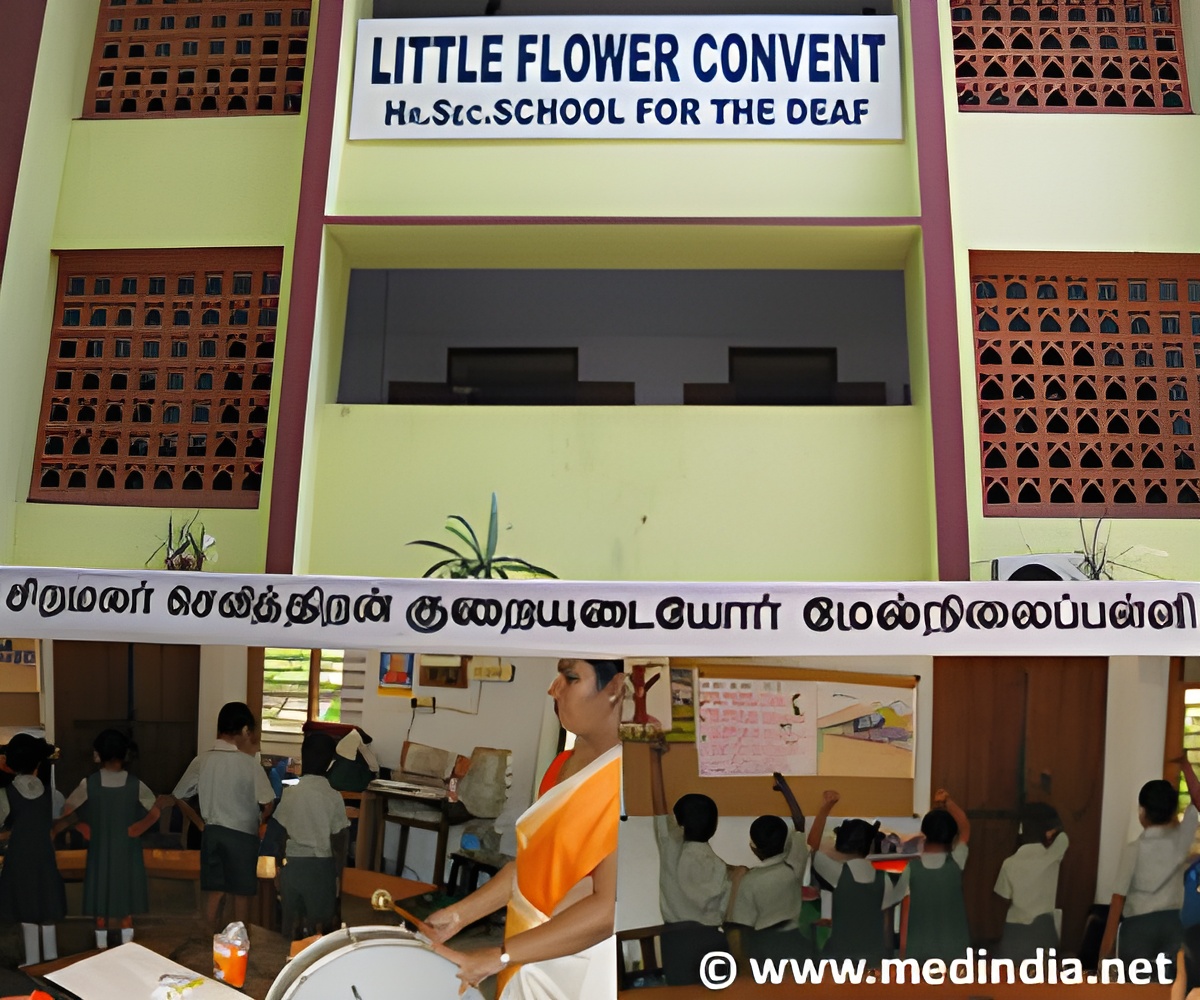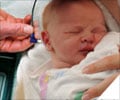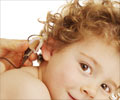Kids with hearing impairment can be rehabilitated to live normal life with appropriate intervention by trained professionals and cooperative parents. ‘Little Flower Convent for the Deaf’ shows how….

Consanguineous marriage (marrying within family related by blood) is the most cited genetic reason causing deafness. Non-genetic reason in the prenatal stage include pregnant woman affected by rubella, typhoid, jaundice or chickenpox. In India home birth in the absence of trained medical assistance remains popular. However faulty handling of the infant while delivering at home is one of the reasons causing deafness. Another reason is the use of forceps during labour, which is capable of damaging the inner ear leading to hearing impairment. Rubella attack or jaundice at the neo-natal stage or even certain drugs administered to treat typhoid in a child is among the reasons of impediment in hearing. Not all people with hearing impairment are born with the condition. Most prevalent cause of deafness is when people are subjected to physical violence such as children flung or slapped across the face, which damages the inner ear. Whatever the reason, with appropriate intervention, speech and communication can be developed with residual hearing (remaining hearing ability after hearing loss).
Level of Awareness
Hearing enables people to acquire speech and language. Children learn to talk, respond and sing relying on sounds they hear and develop language and communication by adding meaning to those sounds. When people can’t hear sounds, it results in lack of language acquisition, ‘detachment’ from the world around them and poor development of vocal organs. Hence deafness leads to deficiency in speech, which is misinterpreted that all hearing impaired people are ‘mute’, thus the terms, ‘deaf and dumb’ and deaf-mute. But, the fact is unless a person has speech impediments along with hearing impairment, most hearing impaired are well able to speak.
In the case of hearing impairment at a young age, early identification of hearing loss within the age of one and early intervention by sending them to schools catering to special needs can facilitate speaking, language acquisition and flexibility of the vocal organs. Serious accusations include parents retaining kids with hearing impairment at home which leads to low language input, abandoning kids in hostels especially girls, as long as the premises is ‘safe’, parents’ lack of follow up on the child’s progress and doctors’ failure to advice parents concerning kids who would need to attend school for special needs depending on the degree of deafness. When girls can’t speak clearly once they reach marriageable age, it causes emotional pain to many concerned, which can otherwise be eased if only parents intervene at an early stage.
Integration Procedure
Influences on the Hearing Impaired
The cost of hearing aid for each ear is exorbitant to a middle-income family, plus buying and changing batteries every 72 hours is a recurring expenditure. However considering the future of a child, the expense is a worthy investment. With appropriate intervention most people with hearing impairment flourish academically, shine in sports and adapt comfortably in regular vocation after successful completion of education. Medindia thanks Sister Jecintha Roselyn, Principal of Little Flower Convent Higher Secondary School for the Deaf, Mrs. Usha Stephen, Lecturer in Teacher’s Training, Mrs. Bhuvana Sundari and Mrs. Nirmala Rani, Primary Education Specialists and Mrs. Chitra Lakshmi, Physical Education Trainer for their contribution.
Source-Medindia










